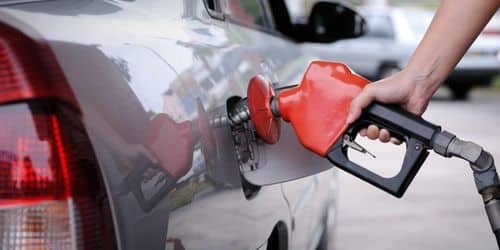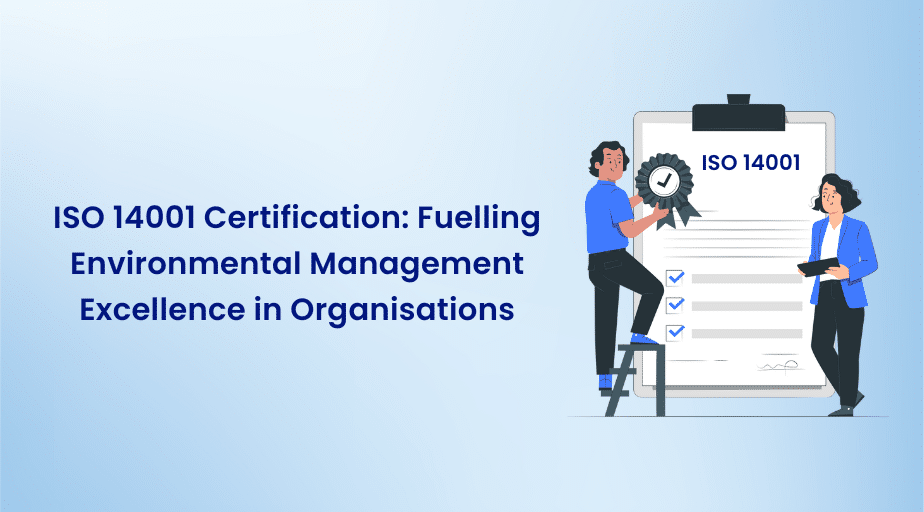Fuel is one of the many expenses associated with running a fleet. It is the most consistent expenditure, so learning how to manage your fuel consumption effectively is crucial. Using automated fuel management systems for your fleet can help you do this. And so, we have prepared this article as a guide to how these fuel management systems work, not just for cars but also for motorcycles. We have also included a list of the best fuel management systems you can try out.
What Does A Fuel Management System Do?
Fuel management systems are intended to monitor and control your fleet’s fuel consumption. They precisely measure and track fuel inventories and how fuel is dispensed from your fuel tank. This data is then stored in systems and reported to the manager via web portals to provide helpful information.
How Fuel Management Systems Can Assist Your Fleet
One of the most significant advantages of fuel management systems is cost reduction. Improved fuel efficiency frees up more resources and funds for investment in new fleet technology. Small fleet-wide savings today can lead to more significant future gains.
Here are some of the ways fuel management systems can help you enhance efficiency and cut costs:
#1. Keep track of fleet maintenance.
A fuel fleet management system allows you to collect data on individual vehicle fuel usage through refilling patterns or automatic tank monitoring.
If one vehicle’s fuel consumption is very high, your fuel management system will alert you so you may schedule a maintenance check to address the issue.
#2. Improve fuel efficiency
Fuel consumption is affected by how and where your staff drives. Minor modifications to their driving habits can result in significant cost reductions.
You can track driver behavior with some fuel management system technologies and determine who needs additional training or ideas for minimizing fuel use. You can also discover fuel theft. As well, you can order reefer fuel delivery here.
#3. Maintain compliance
CO2 emissions are severely controlled in many jurisdictions and ensuring that your business fleet meets emission regulations is critical for limiting liability and lowering overhead expenses.
Tank gauging systems can detect when a containment sump is failing so that the problem can be resolved. This function ensures that your automobiles are not environmentally hazardous and are in compliance.
Best Fuel Management Systems
#1. E.J. Ward
Fleets may rely on E.J. Ward for various automated fuel management services, including IoT fuel control, automatic fuelling software, vehicle telematics, tank level sensors, and EV charging stations. Customers can also get help with installation and training from them.
Their fuel control services are entirely cloud-based, utilizing IoT technology to offer real-time data and manage access to fuel stations, vehicle washes, security gates, and other locations.
#2. FuelMaster
Syntech Systems provides many fleet fuel management systems, notably the FuelMaster series.
These and other systems provide their users with a variety of functions, including:
- Real-time transaction tracking at gas stations
- Various fuelling process options, such as keypads and proximity cards, are available.
- Contact with tank monitors and gauges
- Fuel management and control
- Fuel efficiency monitoring
- Maintenance-friendly modular design
Furthermore, they offer free training to their consumers and distributors.
#3. Gasboy
EKOS (Energy Knowledge Operating System) software, which tracks transactions and manages bespoke reporting on data from numerous systems, is one of Gasboy’s services.
They also provide a variety of fuel island and vehicle tracking software solutions, each of which provides dependable, comprehensive services.
Their items are from various companies, and they take pride in offering a comprehensive selection of services.
#4. GIR
GIR has been in the business for decades, offering them expert insight into the demands of fleet managers worldwide. They always look for ways to improve their goods, including hardware and software solutions.
Among these items are:
- TIP/GCA terminal, which is a highly adaptable and user-friendly hardware solution
- W100 and W200 web-based software enable simple management and organization of fuel-related data.
Their hardware and software are fully compatible, making them an excellent choice for a simple package of fuel management system features.
An authorized supplier is required to service your GIR fuel management system. Unauthorized service providers may void a fuel management system’s warranty.
#5. Petro Vend
OPW sells gasoline control systems called Petro Vend 100 and 200.
These fuel management systems are easily expandable for up to 1,000 users and have a plethora of options, including:
- Numerous key and card reader possibilities.
- Several pedestal size possibilities.
- Serviceability and ease of installation
Petro Vend devices also work with various fuel management software packages, allowing for remote data tracking and analytics.
Automated Fuel Management Systems
Automated fuel management systems provide fleet organizations with a considerably higher level of accountability, saving up to 15% on fuel use and 10-20% on shrinkage,’ or wasted fuel. All fuel management data can be integrated with a fleet management system and stored in a single database for increased efficiency, removing the need for fleets to rely on manual or duplicate entries into numerous databases.
Features Of Automated Fuel Management Systems
- Fuel use and refueling according to the required/selected time frame
- Real-time RPM data on the server, as well as over-revving alarms
- Temperature reports on the server in real-time, as well as alerts at low and high levels.
- Refueling without using cash
- It avoids fraud and fuel mismatches.
- Authorization for remote control
- Unauthorized fueling is automatically controlled.
- Audit controls and reports for fuel purchased or sold.
- Low-level alert for the next fuel purchase
- Geofence warning
Fuel Management Systems For Motorcycles
Unlike cars, motorcycles are too basic to provide information to the rider while on the road. Even the most basic cars now have sophisticated fuel gauge readings and can monitor a car’s fuel use based on driving style and provide distance to empty readings and real-time fuel consumption numbers. All of these features are not readily available on many motorcycles.
This has created a market for fuel management systems and kits that provide the rider complete control over the fueling of the motorcycles. In this manner, the rider may modify how gasoline is delivered to the bike and make adjustments on the fly.
Fuel Management Systems For Carburetor Motorcycles
So operating fuel management systems with carburetors is a difficult chore. In contrast to FI units, the fuel supply to the air ratio is done manually by turning screws and regulating suitably. However, with fuel management systems, it is simple to attach it to a carbureted bike, make a pre-adjustment to allow for the richest supply, and then limit the flow via the FMS. The carburetor will perform precisely as it should, but the rider will regulate the fuel flow to the carburetor according to his/her needs.
Fuel Management Systems For FI Motorcycles:
Fuel management systems on motorcycles with fuel injection are far superior because the fuel is injected directly and regulated by the computer. There are no screws to turn, and most importantly, no additional modifications or parts are necessary to fit the bike. The FMS can be directly connected to the FI unit and the bike’s ECU to gather data and regulate fuel usage.
After all of this, it is important to note that FMS systems do not come with instructions on how to use them and what settings to use. It takes a lot of trial and error to get it correct based on how you want the bike to perform. The main advantage is that the bike’s fueling may be adjusted on the fly without requiring specialized tools or technical knowledge.
After installing the FMS, you’ll need to put in a lot of kilometers to see how your bike performs under different settings and which one you favor the most. It is important to realize that there is no such thing as a perfect or correct setting. They may and will differ from person to person based on the riding preferred. Some people prefer it as low and fuel-efficient, while others prefer a richer, high-power-producing mode. As a result, it is always subject to change.
Selecting the Best Fuel Management System
When scanning your options for the best fuel management systems for your fleet, the options listed below are a fantastic place to start.
#1. Products
Suppose you only need a basic fuel control system with some data tracking software. In that case, your options will be considerably different from those of a corporation that requires gas tank monitoring and GPS-based tracking.
Some companies may be better at particular items than others, so spend time researching what each company excels at.
#2. Features
Individual items may have a variety of features. The fundamentals, such as card/chip readers and ease of installation, may be all you require.
On the other hand, you may want a more advanced system with many built-in functions to boost your fuel management habits.
You’ll be able to pick the ideal fuel management system for you by comparing the goods and features offered by each firm.
Servicing Your Fuel Management Systems
Contact an authorized service contractor if your fleet fuel management systems require service.
Using unlicensed servicers can void system warranties and cost more than engaging a skilled and efficient authorized servicer.
How Much Does A Fuel Management System Cost?
A fuel management system will typically cost roughly $35 per month per vehicle or anywhere between $3500 and $6500 per year for a fleet.
What Is A Stand Alone Fuel Management System?
A stand-alone fuel management system is a vehicle EFI device that manages the fuel system. They are fuel management systems that operate independently and have no effect on other systems, such as the ignition or transmission.
How can I choose the best fuel management system for my fleet?
When choosing a fuel management system, consider the size and complexity of your fleet, the features you need, and the cost of the system. It’s also important to choose a system that is compatible with your existing technology and can integrate with other systems, such as GPS and telematics.
Can fuel management systems be integrated with other fleet management systems such as GPS and telematics?
Yes, many fuel management systems can integrate with other fleet management systems, such as GPS and telematics, to provide a more comprehensive view of fleet operations and improve decision-making.
What are the different types of fuel management systems available?
There are various types of fuel management systems available, such as:
- Fuel card systems that use a central database to track fuel purchases and assign them to specific vehicles or drivers.
- Telematics systems that track fuel consumption and usage in real-time using GPS and other sensors.
- Automatic Tank Gauging Systems that use sensors to monitor fuel levels in tanks and generate reports.
In Conclusion,
Fuel costs do not have to be a source of concern. When you use a fuel management system to improve your fuel efficiency, you can:
- Cut expenses
- Save time and money
- Improve driver retention and behavior
- Lower your carbon footprint.
With these advantages, you can save money for electrification or more fuel-efficient automobiles tomorrow. The ability to execute significant change is made possible by the freedom of lower gasoline prices.
Fuel Management Systems FAQs
What is in the fuel system?
The fuel system includes the fuel tank, pump, filter, and injectors or carburetor, and is in charge of providing fuel to the engine as needed.
Why is fuel management important?
Fuel management systems can help detect vehicle speeding and severe braking incidents. This data assists you in understanding and promoting safe driving throughout your fleet.
What is a FMU management unit?
An FMU is also known as a boost-dependent fuel pressure regulator. The FMU is a variable fuel-pressure regulator that automatically boosts fuel pressure as the boost increases.
Related Articles
- FINANCIAL MANAGEMENT SYSTEMS: Top Benefits Of FMSs
- FLEET MANAGER: Job Description, Responsibilities, And Salary
- 10 BEST FLEET MANAGEMENT SOFTWARE IN 2023
- A DETAILED GUIDE ON VEHICLE MANAGEMENT SYSTEMS
- BEST MOTORCYCLE BRANDS: Top 21 Brands in the World for Beginners & Pros






